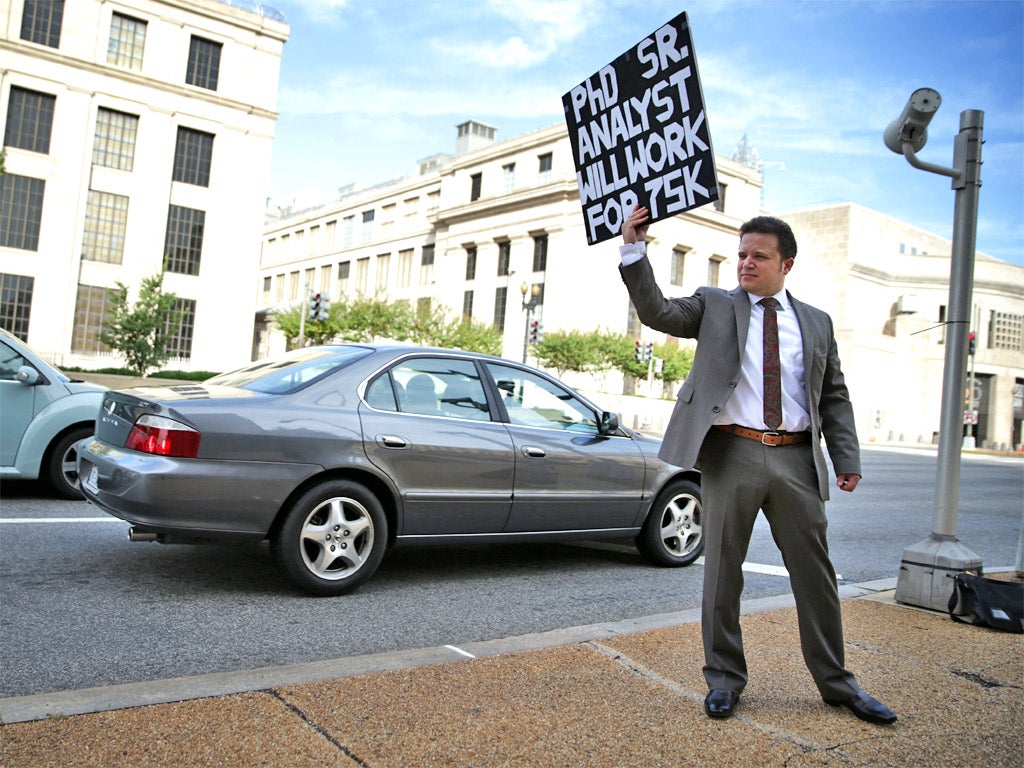Obama says Republicans are using 'extortion' to end US government shutdown and raise debt ceiling
Speaker of the House, John Boehner, was asked to put a no strings attached deal on the table

President Barack Obama has blasted Congress, accusing House Republicans of attempting to “extort” him into offering concessions in return for ending the government shutdown and voting to raise the debt ceiling but indicated he could tolerate short-term fixes to get past the immediate crisis.
“We can’t make extortion a routine part of our democracy… we have got to put a stop to it,” the president said in an urgently called press conference as Washington entered its eighth day of a partial government closure and edged ever closer to not being able to pay its bills including to the holders of American debt.
He made his remarks in the White House press room after telephoning John Boehner, the speaker of the House, imploring him to put bills to restore government spending and increase the amount the US can borrow to pay its bills – the debt ceiling - without strings attached. He insisted that thereafter he would be willing to sit down and talk with Republicans on all of the issues involved including the US debt problem.
“Let’s stop the excuses, let’s take a vote and let’s put people back to work,” Mr Obama said in a clear attempt to exert additional pressure on Mr Boehner to take action to end the crisis.
But Mr Obama may have opened the door a crack by suggesting that he would re-enter negotiations on debt and spending if Congress at least passes short-term and temporary bills on a budget and raising the debt ceiling first. “I also told him that having such a conversation, talks, negotiations, shouldn’t require hanging the threats of an economic shutdown or economic chaos over the heads of the American people.”
Within minutes, however, Mr Boehner knocked down any notion of passing even short term solutions without some give from the president first. “The long and short of it is, there's going to be a negotiation here. We can't raise the debt ceiling without doing something about what's driving us to borrow more money and to live beyond our means,” he told reporters.
At his press conference, Mr Obama said: “If Congress refuses to raise what’s called the debt ceiling, America would not be able to meet all of our financial obligations for the first time in 225 years”. Recalling some lone Republicans saying default wouldn’t be so bad, Mr Obama cited CEOs and economists using terms like “‘insane, catastrophic, chaos’”. He added: “Warren Buffett likened default to a nuclear bomb, a weapon too horrible to use.”
Earlier the International Monetary Fund offered its own warning of the possible consequences for the US economy. “If there was a problem lifting the debt ceiling, it could well be that what is now a recovery would turn into a recession or even worse,” IMF chief economist Olivier Blanchard said. Beyond US shores, a default could also cast a chill over world economic prospects.
Increasingly it seems that right-wing Republicans may have overplayed their hand trying to use the crisis to cripple the president’s healthcare overhaul, just now coming into effect. Polls tilting heavily against Mr Boehner and his fractured Republicans have not gone unnoticed by the White House. A Washington Post/ABC survey said 70 per cent of Americans blamed the Republicans for the budget stand-off, up several points from a week ago, compared to 51 per cent for the president.
“All we’re asking for is to sit down and have a conversation,” Mr Boehner said earlier, striking a more conciliatory tone. “There’s no reason to make it more difficult to bring people to the table. There’s no boundaries here, there’s nothing on the table, there’s nothing off the table. I’m trying to do everything I can to bring people together and have a conversation.”
The crisis in Washington started with the failure to pass a federal budget last week has now become considerably more grave as the possibility of not raising the debt ceiling grows. Even if few on Wall Street believe Washington capable of such a level of irresponsibility the mere possibility has markets on edge.
“Unfortunately, we’re just held hostage by what’s going on in Washington,” said Dan Veru, chief investment officer of Palisade Capital Management. “The markets are somewhat directionless right now.”
Subscribe to Independent Premium to bookmark this article
Want to bookmark your favourite articles and stories to read or reference later? Start your Independent Premium subscription today.

Join our commenting forum
Join thought-provoking conversations, follow other Independent readers and see their replies